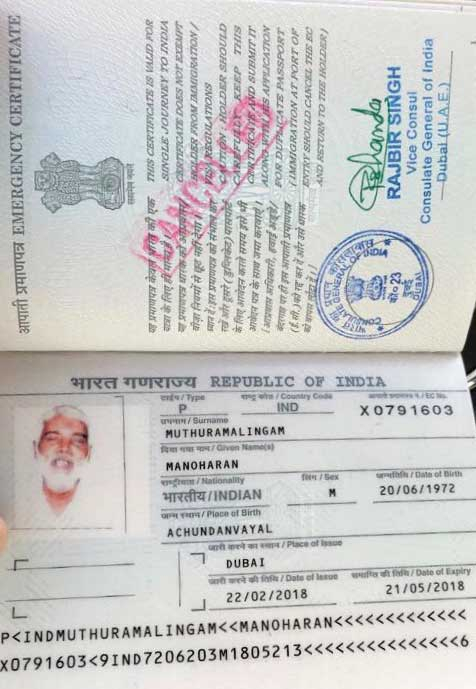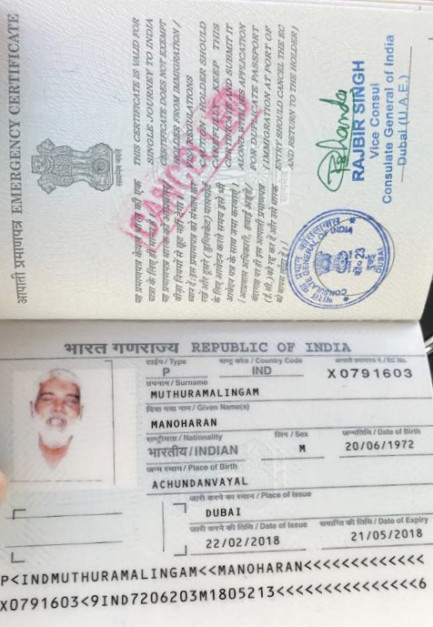Dubai: An Indian man, who had reportedly lived in the UAE without a residence visa for 12 years, was issued an emergency travel document days after his death so that his body could be sent home, community sources said.
The body of Manoharan Muthuramalingam was repatriated to his hometown in Tamil Nadu on Tuesday, 25 days after he died of heart attack, said a social worker who facilitated the repatriation procedures with assistance from the Indian Consulate in Dubai and Dubai Police.
Manoharan had collapsed and died in Naif area on February 9, said Naseer Vatanappally.
“Police found a copy of his old passport from his wallet. Since nobody claimed his body, they got in touch with the Indian Consulate,” he told Gulf News.
With the help of community members, the mission was able to contact some workers from Manoharan’s native place. It was then that it came to light that Manoharan had come to the UAE on a visit visa and had never got an employment visa. He lived doing odd jobs.
Once the family of Manoharan was traced, the mission authorised Naseer to liaise with them and local authorities to repatriate the body of Manoharan.
His wife and two daughters sent an authorisation letter to repatriate his body.
However, Manoharan’s old passport — the only valid document he had — had expired in 2016. Hence, the mission issued an emergency certificate which is commonly referred to as “out-pass” in the deceased man’s name to assist the repatriation, said Naseer.
“That was issued on February 22. It was only with that reference that the rest of the documents could be processed,” he said.
When contacted, the consulate said an emergency certificate is issued to facilitate the return of Indian citizens who do not have a valid passport.
“It is a one-time travel document that shows the Indian citizen is allowed to return home. It is usually issued to people who are returning without a passport, deportees and for repatriation of human remains of Indians without a passport,” said Sumathi Vasudevan, consul (Consular, Labour).
The consulate confirmed that it had issued a letter to the social worker authorising him for the collection of documents and processing them from local authorities to repatriate the body.
“We e provided full assistance for the transport of mortal remains of Manoharan. We also bore the cost of the ticket for a person from his village authorised to accompany the body,” the diplomat said.
“Based on a request from the consulate, Air India flew the body free of cost on an Air India Express flight,” she added.
Naseer said the money he had to spend for the repatriation services including documentation, ticket fare, and charges for embalming and the coffin would be reimbursed by the consulate through the Indian Community Welfare Fund.
The social worker appreciated the humanitarian support from the Indian mission, Dubai Police and the airline in repatriating the body of the illegal resident.
“I wish this man had approached the consulate when he was alive and corrected his residency status. Families of those who do not live by the law [in the UAE] end up in tragedies like this. This case highlights the importance of more awareness about such issues,” he added.










